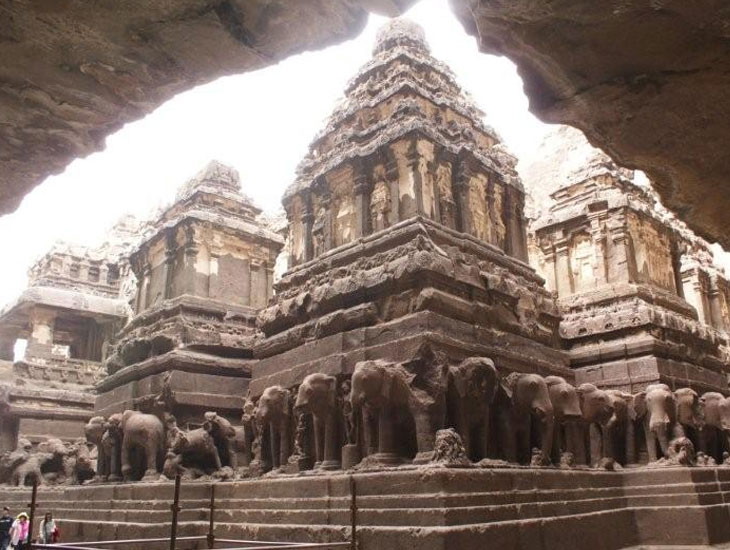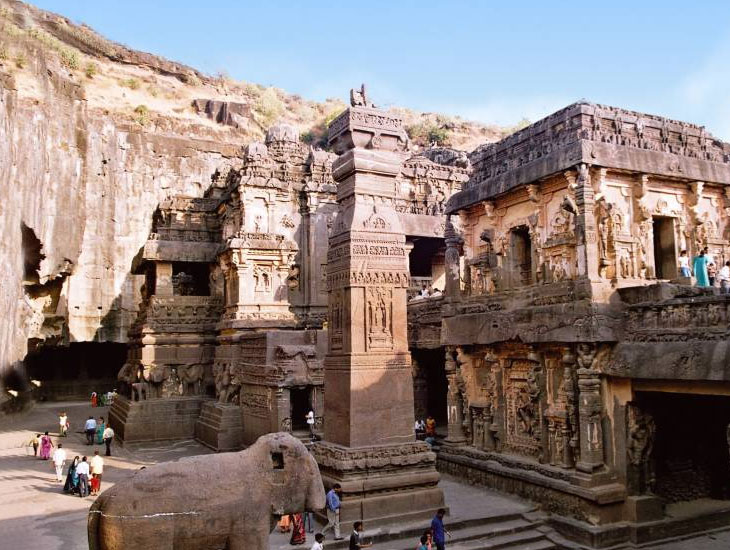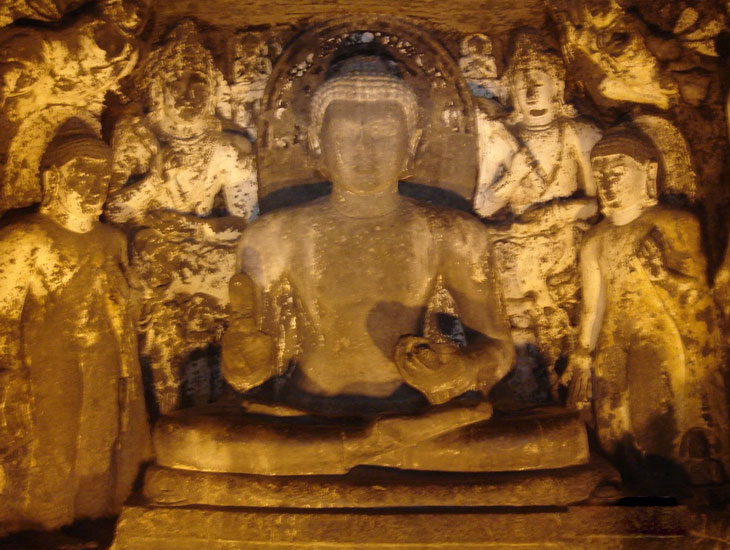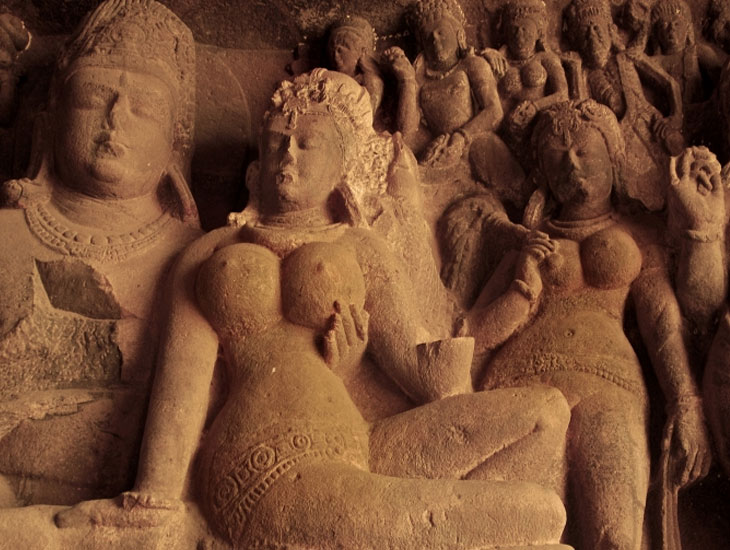
AJANTA is world's greatest historical monument recognised by UNESCO located just 55kms from Jalgaon city and 105kms from Aurangabad City of Maharashtra, India. There are 30 caves in Ajanta of which 9, 10, 19, 26 and 29 are chaitya-grihas and the rest are monasteries. These caves were discovered in AD 1819 and were built up in the earlier 2nd century BC-AD.
 Ajanta and Ellora are the pride of Maharashtra. The rock-cut caves of both these sites are world famous and illustrate the degree of skill and artistry that Indian craftsmen had achieved several hundred years ago. Ajanta dates from 100 B.C. while Ellora is younger by some 600 years. The village of Ajanta is in the Sahyadri hills, about 99 kms. From Aurangabad; a few miles away in a mammoth horseshoe-formed rock, are 30 caves overlooking a gorge, `each forming a room in the hill and some with inner rooms. Al these have been carved out of solid rock with little more than a hammer and chisel and the faith and inspiration of Buddhism. Here, for the Buddhist monks, the artisans excavated Chaityas (chapels) for prayer and Viharas (monasteries) where they lived and taught. Many of the caves have the most exquisite detailed carvings on the walls, pillars and entrances as well as magnificent wall paintings.
Ajanta and Ellora are the pride of Maharashtra. The rock-cut caves of both these sites are world famous and illustrate the degree of skill and artistry that Indian craftsmen had achieved several hundred years ago. Ajanta dates from 100 B.C. while Ellora is younger by some 600 years. The village of Ajanta is in the Sahyadri hills, about 99 kms. From Aurangabad; a few miles away in a mammoth horseshoe-formed rock, are 30 caves overlooking a gorge, `each forming a room in the hill and some with inner rooms. Al these have been carved out of solid rock with little more than a hammer and chisel and the faith and inspiration of Buddhism. Here, for the Buddhist monks, the artisans excavated Chaityas (chapels) for prayer and Viharas (monasteries) where they lived and taught. Many of the caves have the most exquisite detailed carvings on the walls, pillars and entrances as well as magnificent wall paintings.
 These caves were discovered early in the 19th century quite by chance by a party of British Officers on manoeuvres. Today the paintings and sculptures on Buddha’s life, belonging to the more mellow and ritualistic Mahayana Buddhism period, are world famous. Copies of them were shown in the Crystal Palace exhibition in London in 1866. These were destroyed in a fire there. Further copies were published soon afterwards and four volumes of reproductions were brought out in 1933 by Ghulam Yazdani, the Director of Archaeology of the then Hyderabad State. Ajanta has formed an epicentre of interest for those who appreciate and are eager to know more about Indian history and art.
These caves were discovered early in the 19th century quite by chance by a party of British Officers on manoeuvres. Today the paintings and sculptures on Buddha’s life, belonging to the more mellow and ritualistic Mahayana Buddhism period, are world famous. Copies of them were shown in the Crystal Palace exhibition in London in 1866. These were destroyed in a fire there. Further copies were published soon afterwards and four volumes of reproductions were brought out in 1933 by Ghulam Yazdani, the Director of Archaeology of the then Hyderabad State. Ajanta has formed an epicentre of interest for those who appreciate and are eager to know more about Indian history and art.
 The Ellora caves house Hindu, Buddhist as well as Jain temples. According to Hinduism, Buddhism and Jainism, it is one of the possible locations of Mt Meru or Sumeru, which is the center of the universe. Jainism is by far the oldest religion in the region. Jains were the first to build temples as symbolic representations of the mountain. Couldn’t Jains, or even people before them, have carved the basic Ellora caves, in times immemorial? Otherwise the site was some just some sort of market place, where each religious group or ruler carved out booths for themselves when they needed them. This just sounds too random.
The Ellora caves house Hindu, Buddhist as well as Jain temples. According to Hinduism, Buddhism and Jainism, it is one of the possible locations of Mt Meru or Sumeru, which is the center of the universe. Jainism is by far the oldest religion in the region. Jains were the first to build temples as symbolic representations of the mountain. Couldn’t Jains, or even people before them, have carved the basic Ellora caves, in times immemorial? Otherwise the site was some just some sort of market place, where each religious group or ruler carved out booths for themselves when they needed them. This just sounds too random.
Opening Hours
9am until sunset (around 5.30 p.m.). The Ajanta caves are closed on Mondays, and the Ellora caves are closed on Tuesdays. Both caves are open on national holidays. However, try to avoid visiting then (as well as weekends) as the crowds can be maddening and you won't have a peaceful experience.